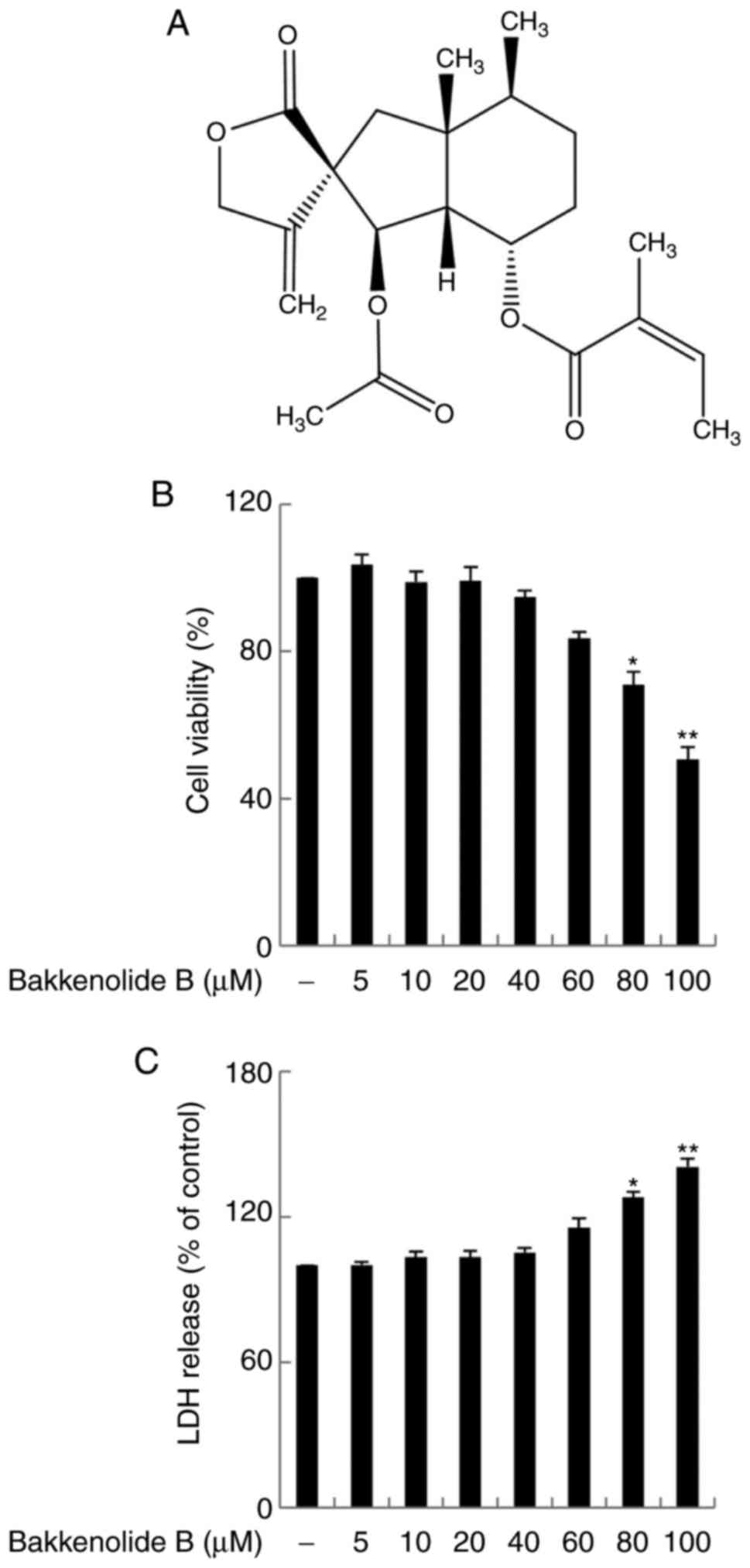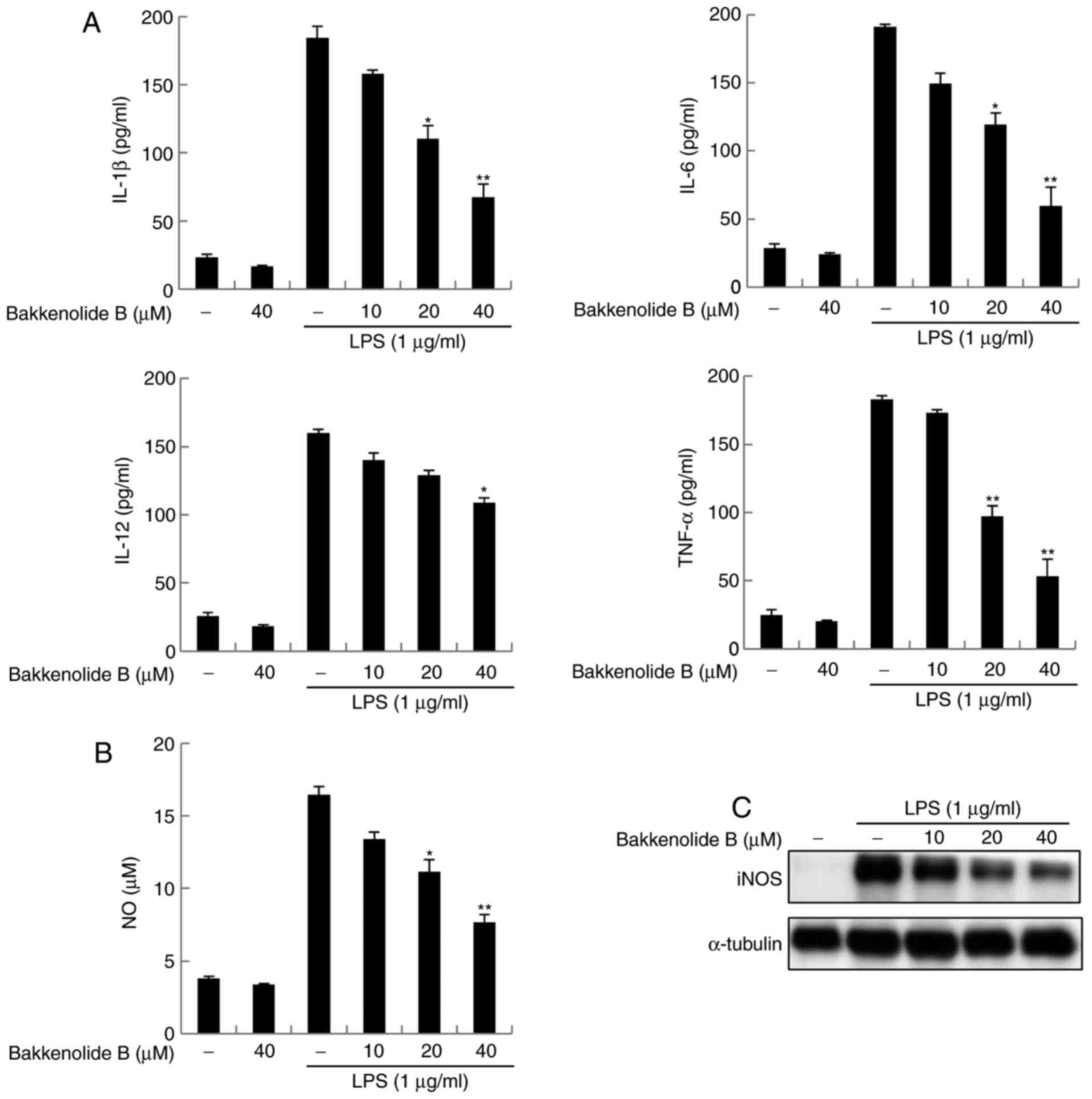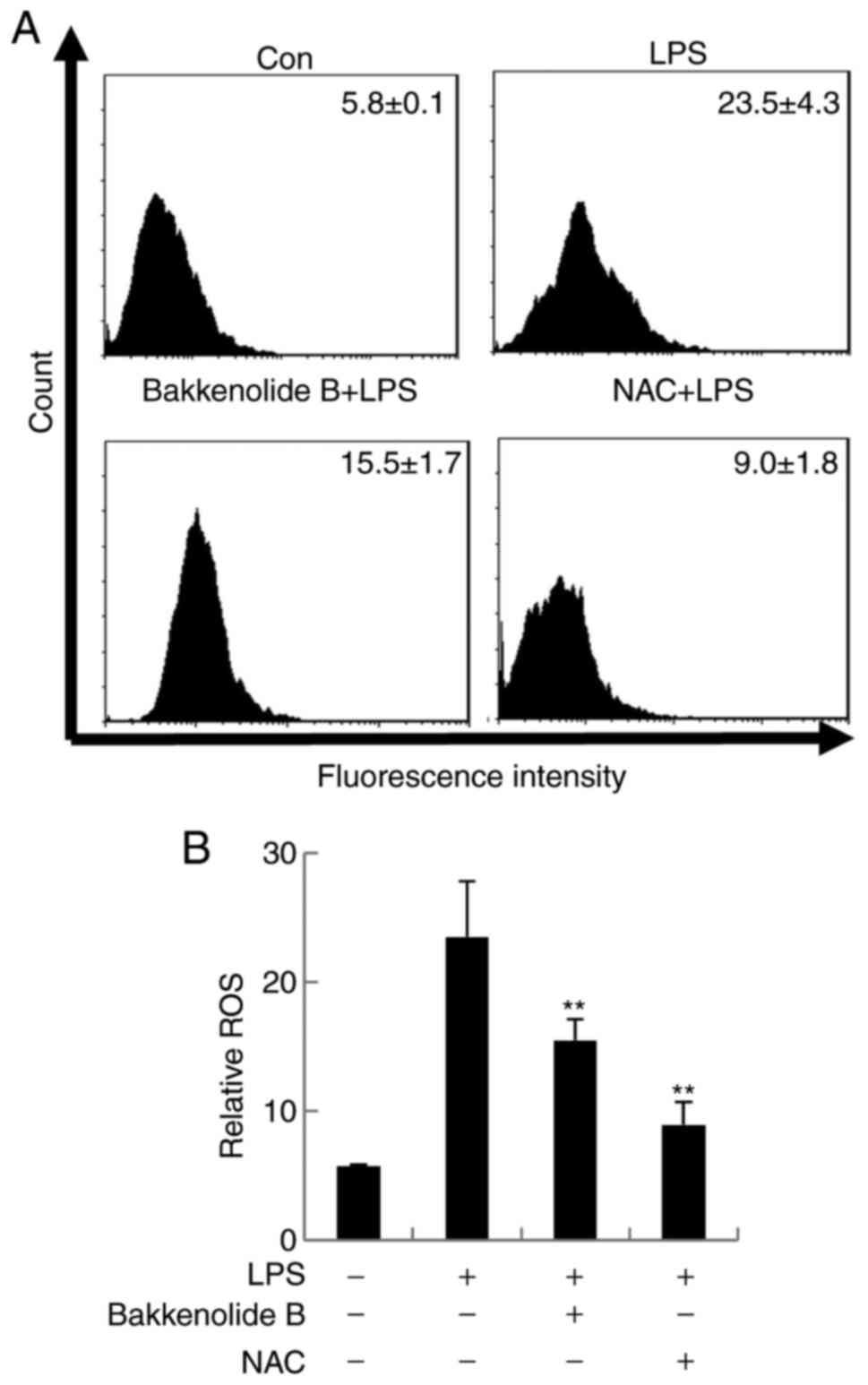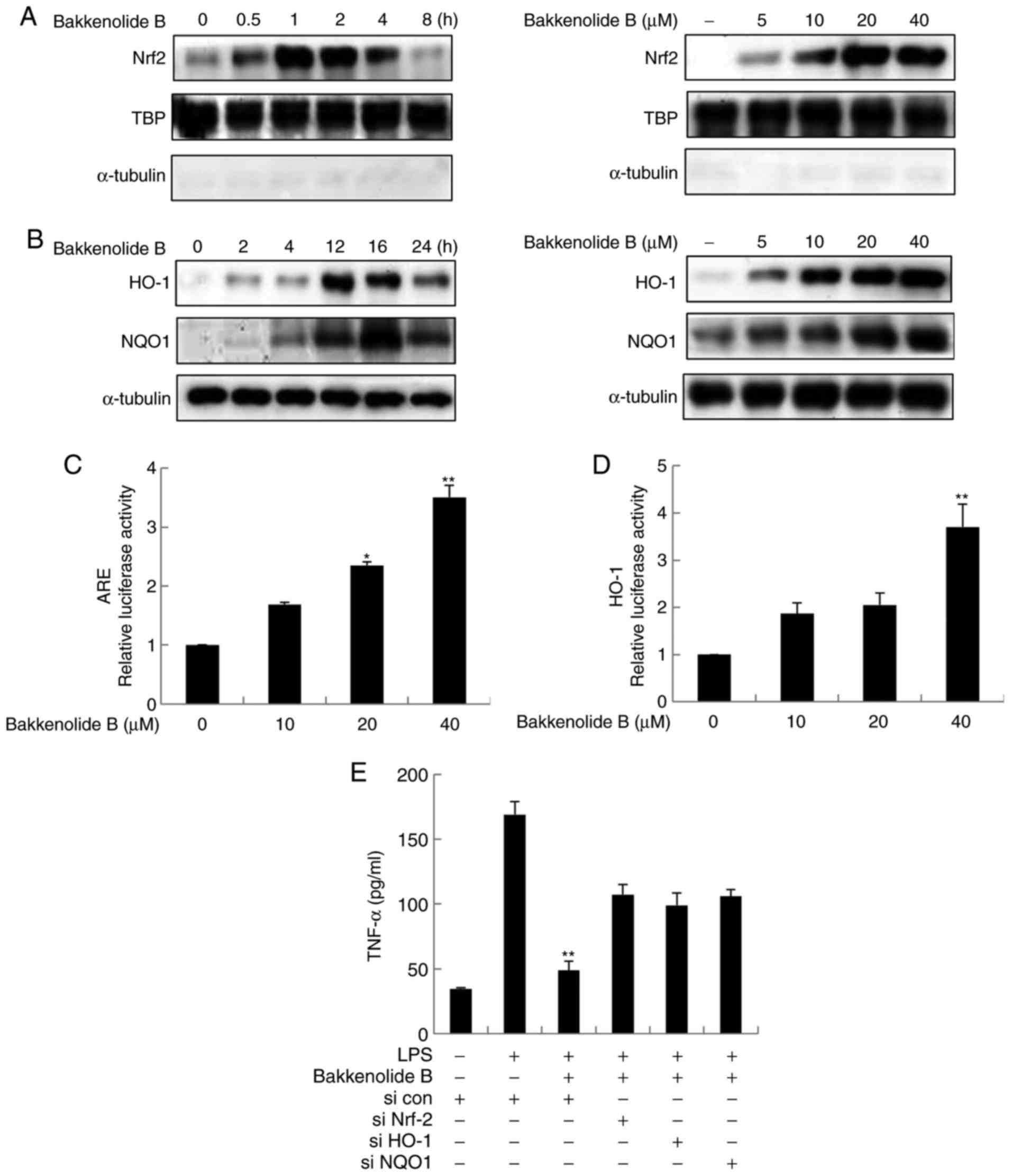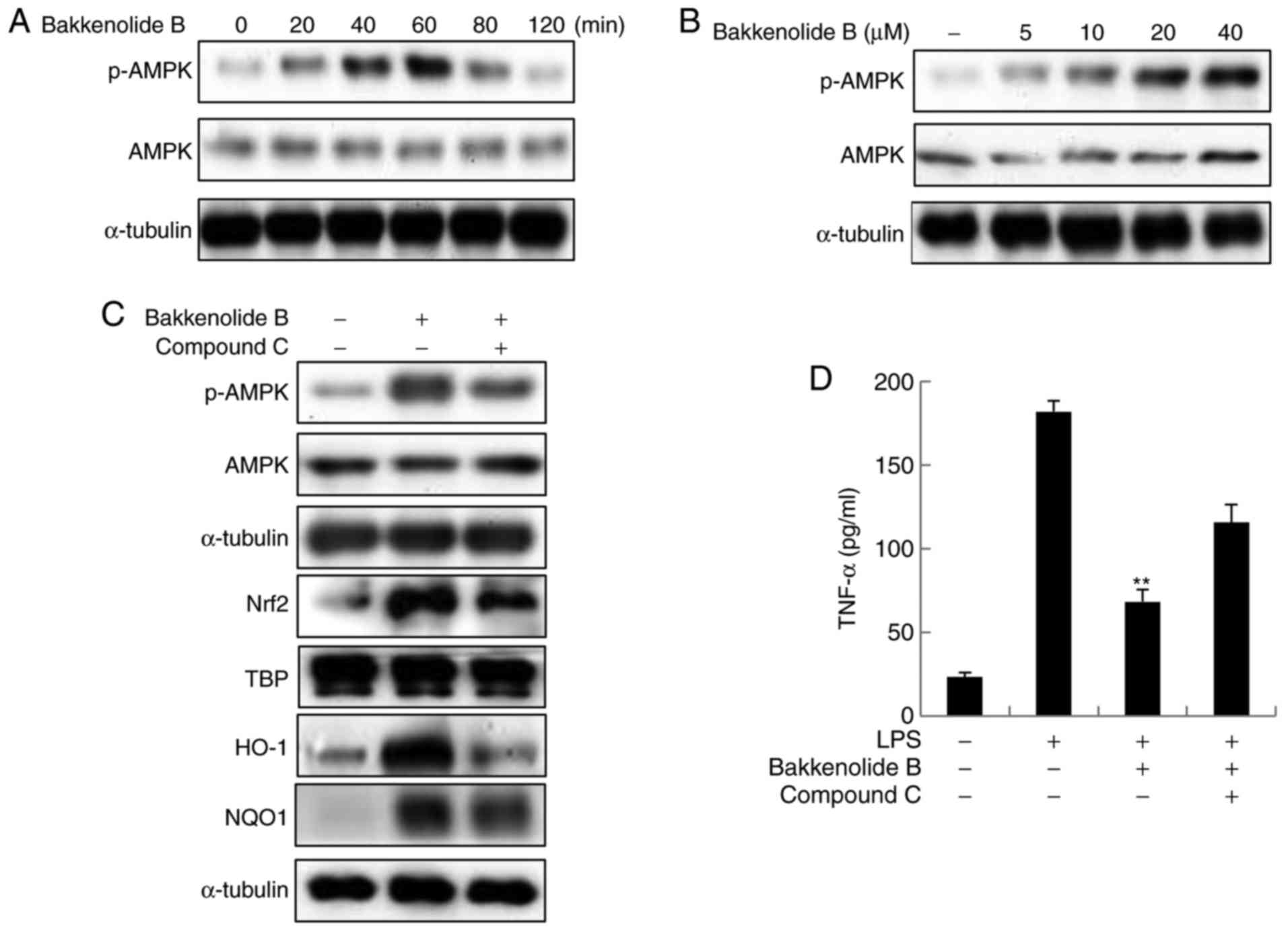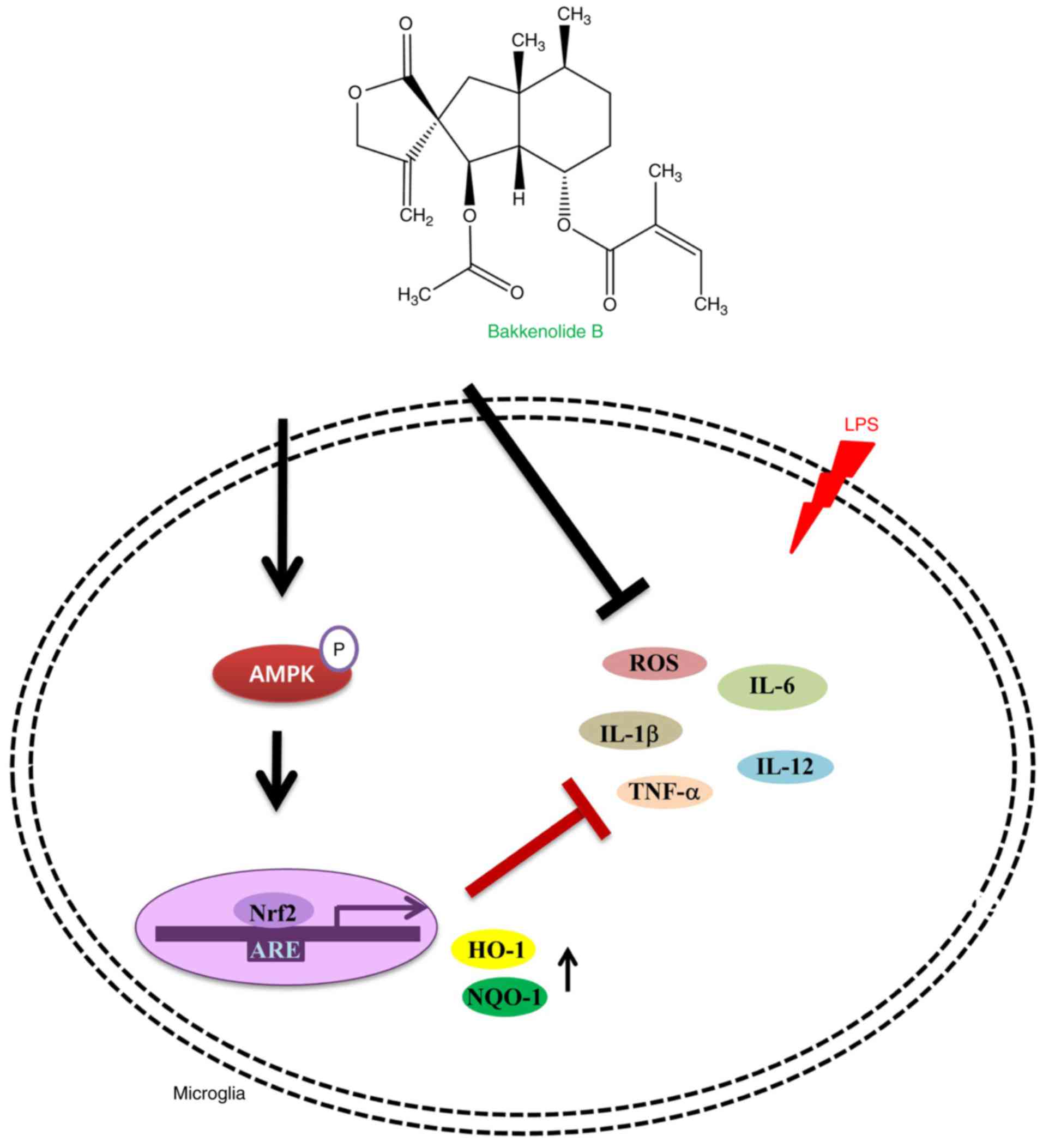|
1
|
Letiembre M, Liu Y, Walter S, Hao W,
Pfander T, Wrede A, Schulz-Schaeffer W and Fassbender K: Screening
of innate immune receptors in neurodegenerative diseases: A similar
pattern. Neurobiol Aging. 30:759–768. 2009. View Article : Google Scholar
|
|
2
|
Frank-Cannon TC, Alto LT, McAlpine FE and
Tansey MG: Does neuroinflammation fan the flame in
neurodegenerative diseases? Mol Neurodegener. 4:472009. View Article : Google Scholar : PubMed/NCBI
|
|
3
|
Mueller AM, Yoon BH and Sadiq SA:
Inhibition of hyaluronan synthesis protects against central nervous
system (CNS) autoimmunity and increases CXCL12 expression in the
inflamed CNS. J Biol Chem. 289:22888–22899. 2014. View Article : Google Scholar : PubMed/NCBI
|
|
4
|
Slusarczyk J, Trojan E, Glombik K,
Piotrowska A, Budziszewska B, Kubera M, Popiolek-Barczyk K, Lason
W, Mika J and Basta-Kaim A: Anti-inflammatory properties of
tianeptine on lipopolysaccharide-induced changes in microglial
cells involve toll-like receptor-related pathways. J Neurochem.
136:958–970. 2016. View Article : Google Scholar
|
|
5
|
Tao L, Zhang F, Hao L, Wu J, Jia J, Liu
JY, Zheng LT and Zhen X: 1-O-tigloyl-1-O-deacetyl-nimbolinin B
inhibits LPS-stimulated inflammatory responses by suppressing
NF-kappaB and JNK activation in microglia cells. J Pharmacol Sci.
125:364–374. 2014. View Article : Google Scholar
|
|
6
|
Ransohoff RM, Schafer D, Vincent A,
Blachère NE and Bar-Or A: Neuroinflammation: Ways in which the
immune system affects the brain. Neurotherapeutics. 12:896–909.
2015. View Article : Google Scholar : PubMed/NCBI
|
|
7
|
Jebelli J, Hooper C and Pocock JM:
Microglial p53 activation is detrimental to neuronal synapses
during activation-induced inflammation: Implications for
neurodegeneration. Neurosci Lett. 583:92–97. 2014. View Article : Google Scholar : PubMed/NCBI
|
|
8
|
Xia CY, Zhang S, Gao Y, Wang ZZ and Chen
NH: Selective modulation of microglia polarization to M2 phenotype
for stroke treatment. Int Immunopharmacol. 25:377–382. 2015.
View Article : Google Scholar : PubMed/NCBI
|
|
9
|
Gaire BP, Kwon OW, Park SH, Chun KH, Kim
SY, Shin DY and Choi JW: Neuroprotective effect of 6-paradol in
focal cerebral ischemia involves the attenuation of
neuroinflammatory responses in activated microglia. PLoS One.
10:e01202032015. View Article : Google Scholar : PubMed/NCBI
|
|
10
|
Lee JA, Kim JH, Woo SY, Son HJ, Han SH,
Jang BK, Choi JW, Kim DJ, Park KD and Hwang O: A novel compound
VSC2 has anti-inflammatory and antioxidant properties in microglia
and in parkinson's disease animal model. Br J Pharmacol.
172:1087–100. 2015. View Article : Google Scholar :
|
|
11
|
Mazzuferi M, Kumar G, van Eyll J, Danis B,
Foerch P and Kaminski RM: Nrf2 defense pathway: Experimental
evidence for its protective role in epilepsy. Ann Neurol.
74:560–568. 2013. View Article : Google Scholar : PubMed/NCBI
|
|
12
|
Onasanwo SA, Velagapudi R, El-Bakoush A
and Olajide OA: Inhibition of neuroinflammation in BV2 microglia by
the biflavonoid kolaviron is dependent on the Nrf2/ARE antioxidant
protective mechanism. Mol Cell Biochem. 414:23–36. 2016. View Article : Google Scholar : PubMed/NCBI
|
|
13
|
Jayasooriya RG, Lee KT, Choi YH, Moon SK,
Kim WJ and Kim GY: Antagonistic effects of acetylshikonin on
LPS-induced NO and PGE2 production in BV2 microglial cells via
inhibition of ROS/PI3K/akt-mediated NF-kappaB signaling and
activation of Nrf2-dependent HO-1. In Vitro Cell Dev Biol Anim.
51:975–986. 2015. View Article : Google Scholar : PubMed/NCBI
|
|
14
|
Chen J, Yin W, Tu Y, Wang S, Yang X, Chen
Q, Zhang X, Han Y and Pi R: L-F001, a novel multifunctional ROCK
inhibitor, suppresses neuroinflammation in vitro and in vivo:
Involvement of NF-κB inhibition and Nrf2 pathway activation. Eur J
Pharmacol. 806:1–9. 2017. View Article : Google Scholar : PubMed/NCBI
|
|
15
|
Ismaiel AA, Espinosa-Oliva AM, Santiago M,
García-Quintanilla A, Oliva-Martín MJ, Herrera AJ, Venero JL and de
Pablos RM: Metformin, besides exhibiting strong in vivo
anti-inflammatory properties, increases mptp-induced damage to the
nigrostriatal dopaminergic system. Toxicol Appl Pharmacol.
298:19–30. 2016. View Article : Google Scholar : PubMed/NCBI
|
|
16
|
Syed Hussein SS, Kamarudin MN and Kadir
HA: (+)-Catechin attenuates NF-kappaB activation through regulation
of akt, MAPK, and AMPK signaling pathways in LPS-induced BV-2
microglial cells. Am J Chin Med. 43:927–952. 2015. View Article : Google Scholar
|
|
17
|
Xu Y, Xu Y, Wang Y, Wang Y, He L, Jiang Z,
Huang Z, Liao H, Li J, Saavedra JM, et al: Telmisartan prevention
of LPS-induced microglia activation involves M2 microglia
polarization via CaMKKβ-dependent AMPK activation. Brain Behav
Immun. 50:298–313. 2015. View Article : Google Scholar : PubMed/NCBI
|
|
18
|
Lee YY, Park JS, Lee EJ, Lee SY, Kim DH,
Kang JL and Kim HS: Anti-inflammatory mechanism of ginseng saponin
metabolite Rh3 in lipopolysaccharide-stimulated microglia: Critical
role of 5′-adenosine monophosphate-activated protein kinase
signaling pathway. J Agric Food Chem. 63:3472–3480. 2015.
View Article : Google Scholar : PubMed/NCBI
|
|
19
|
Park SY, Jin ML, Wang Z, Park G and Choi
YW: 2,3,4′,5-tetrahyd roxystilbene-2-O-β-d-glucoside exerts
anti-inflammatory effects on lipopolysaccharide-stimulated
microglia by inhibiting NF-κB and activating AMPK/Nrf2 pathways.
Food Chem Toxicol. 97:159–167. 2016. View Article : Google Scholar : PubMed/NCBI
|
|
20
|
Zhou X, Cao Y, Ao G, Hu L, Liu H, Wu J,
Wang X, Jin M, Zheng S, Zhen X, et al: CaMKKβ-dependent activation
of AMP-activated protein kinase is critical to suppressive effects
of hydrogen sulfide on neuroinflammation. Antioxid Redox Signal.
21:1741–1758. 2014. View Article : Google Scholar : PubMed/NCBI
|
|
21
|
Dong XW, Li RJ, Gao X and Row KH:
Bakkenolides from petasites tatewakianus. Fitoterapia. 81:153–156.
2010. View Article : Google Scholar
|
|
22
|
Zhang FJ, Wang Q, Wang Y and Guo ML:
Anti-allergic effects of total bakkenolides from petasites
tricholobus in ovalbumin-sensitized rats. Phytother Res.
25:116–121. 2011. View
Article : Google Scholar
|
|
23
|
Lee KP, Kang S, Park SJ, Choi YW, Lee YG
and Im DS: Anti-allergic and anti-inflammatory effects of
bakkenolide B isolated from petasites japonicus leaves. J
Ethnopharmacol. 148:890–894. 2013. View Article : Google Scholar : PubMed/NCBI
|
|
24
|
Wang S, Jin DQ, Xie C, Wang H, Wang M, Xu
J and Guo Y: Isolation, characterization, and neuroprotective
activities of sesquiterpenes from petasites japonicus. Food Chem.
141:2075–2082. 2013. View Article : Google Scholar : PubMed/NCBI
|
|
25
|
Xu J, Yang B, Guo Y, Jin DQ, Guo P, Liu C,
Hou W, Zhang T, Gui L and Sun Z: Neuroprotective bakkenolides from
the roots of valeriana jatamansi. Fitoterapia. 82:849–853. 2011.
View Article : Google Scholar : PubMed/NCBI
|
|
26
|
Lee YJ, Park SY, Kim SG, Park DJ, Kang JS,
Lee SJ, Yoon S, Kim YH, Bae YS and Choi YW: Identification of a
novel compound that inhibits iNOS and COX-2 expression in
LPS-stimulated macrophages from schisandra chinensis. Biochem
Biophys Res Commun. 391:1687–1692. 2010. View Article : Google Scholar
|
|
27
|
Fan H, Wu PF, Zhang L, Hu ZL, Wang W, Guan
XL, Luo H, Ni M, Yang JW, Li MX, et al: Methionine sulfoxide
reductase A negatively controls microglia-mediated
neuroinflammation via inhibiting ROS/MAPKs/NF-κB signaling pathways
through a catalytic antioxidant function. Antioxid Redox Signal.
22:832–847. 2015. View Article : Google Scholar : PubMed/NCBI
|
|
28
|
Song SY, Jung YY, Hwang CJ, Lee HP, Sok
CH, Kim JH, Lee SM, Seo HO, Hyun BK, Choi DY, et al: Inhibitory
effect of ent-sauchinone on amyloidogenesis via inhibition of
STAT3-mediated NF-κB activation in cultured astrocytes and
microglial BV-2 cells. J Neuroinflammation. 11:1182014. View Article : Google Scholar
|
|
29
|
Wu LH, Lin C, Lin HY, Liu YS, Wu CY, Tsai
CF, Chang PC, Yeh WL and Lu DY: Naringenin suppresses
neuroinflammatory responses through inducing suppressor of cytokine
signaling 3 expression. Mol Neurobiol. 53:1080–1091. 2016.
View Article : Google Scholar
|
|
30
|
Kang SM, More SV, Park JY, Kim BW, In PJ,
Yoon SH and Choi DK: A novel synthetic HTB derivative, BECT
inhibits lipopolysaccharide-mediated inflammatory response by
suppressing the p38 MAPK/JNK and NF-κB activation pathways.
Pharmacol Rep. 66:471–479. 2014. View Article : Google Scholar : PubMed/NCBI
|
|
31
|
Santa-Cecilia FV, Socias B, Ouidja MO,
Sepulveda-Diaz JE, Acuña L, Silva RL, Michel PP, Del-Bel E, Cunha
TM and Raisman-Vozari R: Doxycycline suppresses microglial
activation by inhibiting the p38 MAPK and NF-κB signaling pathways.
Neurotox Res. 29:447–459. 2016. View Article : Google Scholar
|
|
32
|
Vinoth Kumar R, Oh TW and Park YK:
Anti-inflammatory effects of ginsenoside-Rh2 inhibits LPS-induced
activation of microglia and overproduction of inflammatory
mediators via modulation of TGF-β1/smad pathway. Neurochem Res.
41:951–957. 2016. View Article : Google Scholar : PubMed/NCBI
|
|
33
|
Jeong YH, Kim Y, Song H, Chung YS, Park SB
and Kim HS: Anti-inflammatory effects of α-galactosylceramide
analogs in activated microglia: Involvement of the p38 MAPK
signaling pathway. PLoS One. 9:e870302014. View Article : Google Scholar
|
|
34
|
Shu Z, Yang B, Zhao H, Xu B, Jiao W, Wang
Q, Wang Z and Kuang H: Tangeretin exerts anti-neuroinflammatory
effects via NF-κB modulation in lipopolysaccharide-stimulated
microglial cells. Int Immunopharmacol. 19:275–282. 2014. View Article : Google Scholar : PubMed/NCBI
|
|
35
|
Tanaka T, Kai S, Matsuyama T, Adachi T,
Fukuda K and Hirota K: General anesthetics inhibit LPS-induced
IL-1β expression in glial cells. PLoS One. 8:e829302013. View Article : Google Scholar
|
|
36
|
Lin HY, Huang BR, Yeh WL, Lee CH, Huang
SS, Lai CH, Lin H and Lu DY: Antineuroinflammatory effects of
lycopene via activation of adenosine monophosphate-activated
protein kinase-alpha1/heme oxygenase-1 pathways. Neurobiol Aging.
35:191–202. 2014. View Article : Google Scholar
|
|
37
|
Ashabi G, Khalaj L, Khodagholi F,
Goudarzvand M and Sarkaki A: Pre-treatment with metformin activates
Nrf2 antioxidant pathways and inhibits inflammatory responses
through induction of AMPK after transient global cerebral ischemia.
Metab Brain Dis. 30:747–754. 2015. View Article : Google Scholar
|















